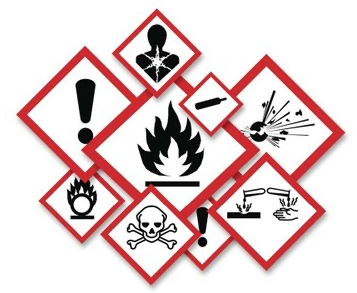Hazard Communication (HAZCOM) – 12 Modules | One Day USD: 150/- and Two Day USD: 250/- Per Pax.
Description
Module 1: Introduction to Hazard Communication
- Importance of HAZCOM in workplace safety
- Regulatory requirements (OSHA HAZCOM Standard 29 CFR 1910.1200, GHS, ISO 45001)
- Purpose: ensuring employees understand chemical hazards
Module 2: Types of Workplace Hazards
- Physical hazards: flammable, explosive, reactive
- Health hazards: toxic, corrosive, irritants, carcinogens
- Environmental hazards
Module 3: Hazard Classification and Risk Assessment
- Identifying hazardous chemicals and materials
- Evaluating exposure risks
- Documenting findings for safe handling
Module 4: Globally Harmonized System (GHS) Overview
- Standardized labeling and classification system
- Pictograms, signal words, and hazard statements
- Safety data sheet (SDS) alignment
Module 5: Labels and Pictograms
- Understanding chemical labels
- Signal words: “Danger” vs. “Warning”
- Hazard symbols and their meanings
Module 6: Safety Data Sheets (SDS) Usage
- Key sections of an SDS (identification, hazards, handling, first-aid)
- How to read, interpret, and use SDS effectively
- Maintaining up-to-date SDS library
Module 7: Safe Handling and Storage of Chemicals
- Proper handling practices to minimize exposure
- Segregation of incompatible chemicals
- Storage requirements, labeling, and ventilation
Module 8: Personal Protective Equipment (PPE)
- Selecting appropriate PPE for specific chemical hazards
- Limitations, inspection, and maintenance of PPE
- Ensuring proper usage by all employees
Module 9: Spill Response and Emergency Procedures
- Immediate containment and control measures
- Evacuation, notification, and communication protocols
- Clean-up, disposal, and reporting of spills
Module 10: Employee Training and Awareness
- Frequency and methods of HAZCOM training
- Responsibilities of employees and supervisors
- Toolbox talks and refresher sessions
Module 11: Documentation and Compliance
- Maintaining SDS records, labels, and training logs
- Internal audits and regulatory inspections
- Incident reporting and corrective actions
Module 12: Continuous Improvement and Safety Culture
- Reviewing near-misses and incidents for lessons learned
- Updating HAZCOM programs and procedures
- Promoting a proactive hazard communication culture
View more Courses
Hi, Welcome back!






